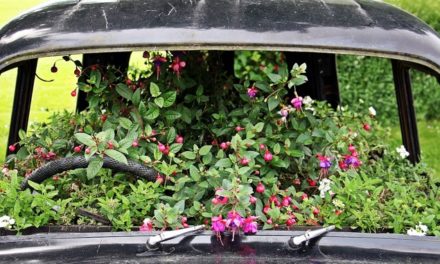Oxygen: Grace
The Transformation
TAILS: “What was that terrible sewage-like smell coming from?” I asked myself as I passed through our garage.
My nose lead me to a bucket of very sick strawberry starts we were given a few days before, but they weren’t sick then. I had put them in the bucket, along with some water, without rinsing the clay off the roots. The clay kept oxygen from getting to the roots and anaerobic bacteria [not needing oxygen] had a field day!
That day opened not only my nose but also my eyes. I had known that some organisms could live without oxygen, but I never thought about them much. There are others that can tolerate oxygen but don’t need it. And there are even some oxygen-breathing bacteria that can transform into an anaerobic state when conditions dictate—like with the strawberries.
“Anaerobic” is often associated with disease, with toxins like tetanus and botulism and cancer. And sometimes, if our garden soil is not aerated well enough, or water-logged, anaerobic conditions can set in around the roots, and plants that were once healthy can die, like my strawberries were doing. We want to make sure air is able to get to the roots.
Oxygenating the ground is to benefit the soil microbes. The bacteria near plant roots breathe oxygen and give off CO2, along with other things beneficial to the plant. But if the oxygen level is too low, they may turn anaerobic. Bad news!
HEADS: If we do not let grace (oxygen’s counterpart) into our lives, our thoughts can turn sour (anaerobic), producing toxic “byproducts” that can hurt others. But if we willingly open the soul to the rich atmosphere of God’s unmerited favor, diseased thoughts and attitudes will revert back to an “aerobic” metabolism, bringing health and happiness to all around.
Grace and oxygen are powerful allies in the garden. They make a very valuable Garden Coin. Do not let someone steal it from you.






